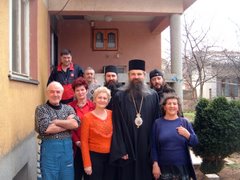Human Rights Group Complain About Lack of Coverage for Serbians in Serbia
According to Human Rights Watch, the two years since unilateral independence in Kosovo have not brought improvement to the position of ethnic minorities in that breakaway Serbian province.
The Human Rights Watch report, circulated in New York, sounds alarm over the position of Roma minority and calls for expansion of the EU mission's mandate and a strategy to improve the situation.
The report, however, makes little mention of the position of the one hundred thousand Serbs, which is worse than that of the other minority groups. Yelena Guskova, an expert with Slav Studies Institute of the Russian Academy of Sciences, comments.
Reports of this kind are all biased, she says. Serbs are living in enclaves, in wire fenced territories. They live in dilapidated buildings, they have no churches nearby, and if they need to go somewhere, they can go escorted by NATO troops because Serb territories are still in the gun sights of Albanian militants.
The former Serb province of Kosovo is where the interests of different countries clashed. The countries in question include the United States, which in fact forced Europe to recognize the independence of Kosovo, run by Albanian authorities; Russia, which wants a fairer solution to the conflict; Belgrade, which won't part with its territory; and now non-governmental organizations have stepped in. These organizations publish reports, and those not knowledgeable in this matter cite these reports. Naturally, the rights of Roma minority are important, but the rights of Serbs should be in the limelight too as the Serb community lived in this land for centuries and clings to it as their last most valuable possession.

















